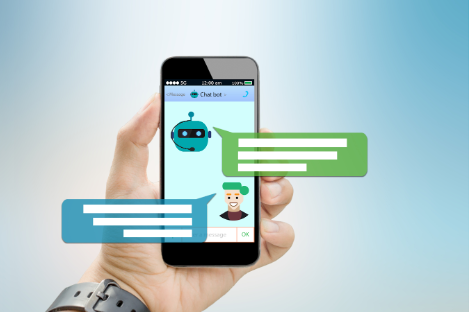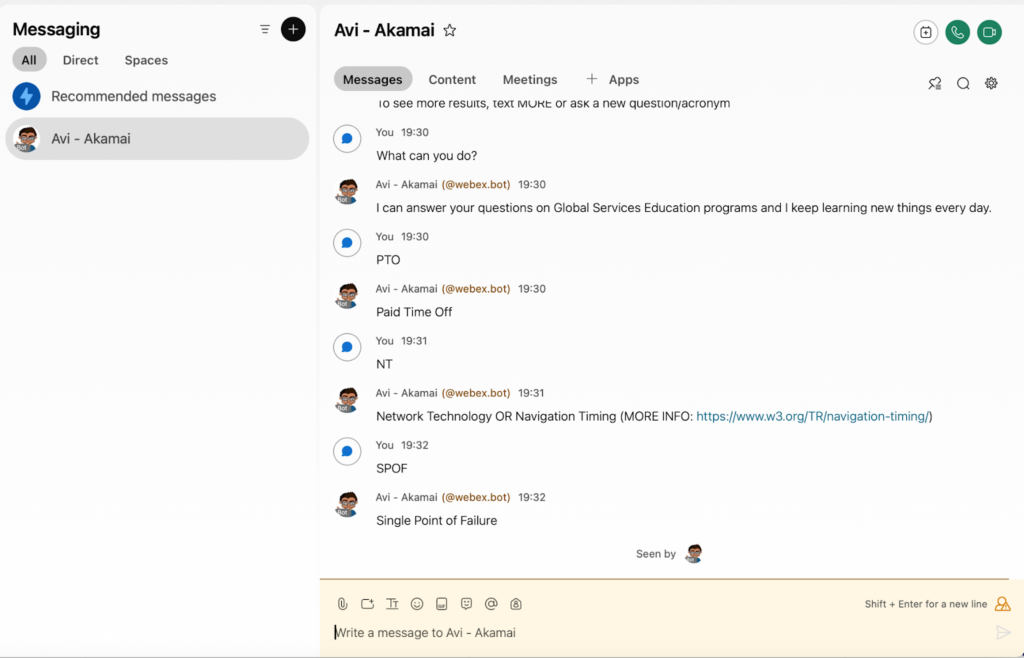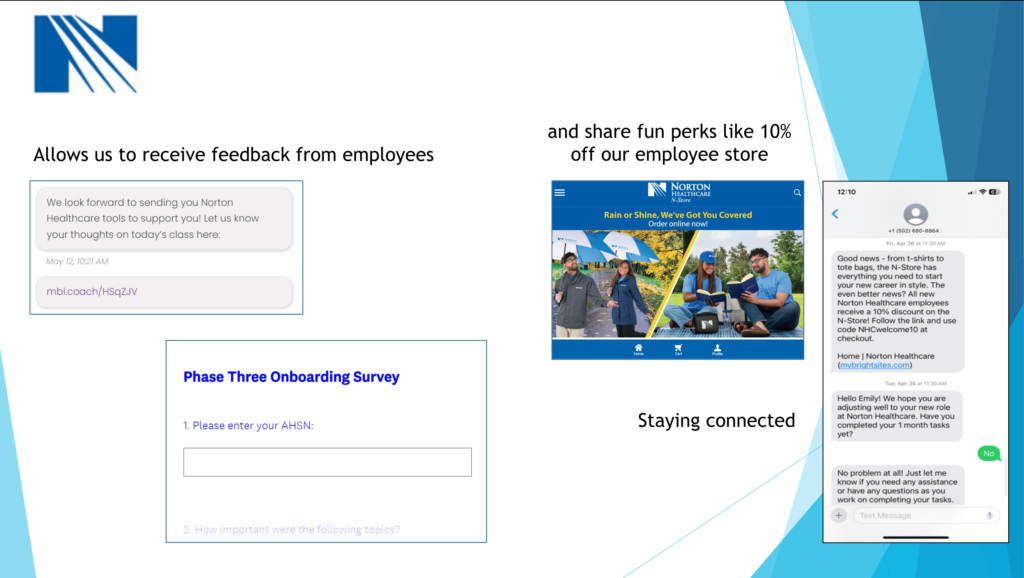The Mobile Coach Platform is a comprehensive solution for the full range of chatbot functionality: from proactively messaging users on messaging platforms like SMS and Microsoft Teams to the more traditional use case of waiting to answer user questions.
When an organization wants to deploy a chatbot to answer questions from employees, customers or other stakeholders, they have an expectation that the intelligence behind the chatbot will deliver accurate responses within the specific context of that organization.
While the core search capability of the chatbot should exhibit industry standard intelligence, the ability of the chatbot to accurately perform within an organization can be impacted by three important factors:
1. Quality of content
Let’s say an organization wants a chatbot to answer employee questions about policies and procedures and not rely on publicly available information. The organization would need to aggregate all their existing content to be comprehensive enough to address the broad range of potential employee inquiries. This content is almost always in disparate locations and not in a format easily ingested by a chatbot engine. Additionally, careful attention should be given to resolve any legacy information that might be contradictory or outdated.
2. Ambiguity of user requests
When users need help from a chatbot, they have a knowledge gap they are trying to bridge. Therefore, it is common for their questions to be poorly worded or to omit crucial context, making it very difficult for a chatbot to grasp what is being asked.
3. Rigidness of privacy and security regulations
Organizational chatbots need to be managed and programmed to adhere to corporate policies and regulatory controls. Often, these controls are invisible to the user, which can impact the perceived quality of a chatbot’s response. For example, a chatbot that is set up to help a financial advisor within a bank may be programmed to not share specific client account information which could impact the financial advisor’s perceived value of whether the chatbot is helpful.
Chatbots can be designed to maximize results for their intended internal audiences while navigating these variables of content quality, user query quality and regulatory compliance. But a platform like Mobile Coach is needed to configure the necessary settings.
The Mobile Coach Platform gives organizations a range of configuration options to meet their specific needs and requirements for search and knowledge base management.
Knowledge Base Management
Mobile Coach’s knowledge base feature allows organizations to create, host and maintain proprietary text-based content such as articles, blog posts, documents, video and audio transcripts. These content elements can be configured with attributes like titles, main content, tags, links, sources, authors, etc. You can control which attributes should be weighted more importantly during a full text search as well as set specific quantities of search results to calibrate search accuracy and speed.
Most organizational source datasets are not inherently formatted in a way that a chatbot can innately make sense of. For best results, organizations need to reformat existing data into the Mobile Coach Platform knowledge base format.
This can be done by leveraging 3rd party scraping technology and/or done by manual human curation. While potentially laborious, this work is critical in enabling a chatbot to make sense of the content in a way to accurately respond to user queries. Mobile Coach’s Knowledge Base API allows for more automated knowledge base maintenance after the initial set up stage has been completed.
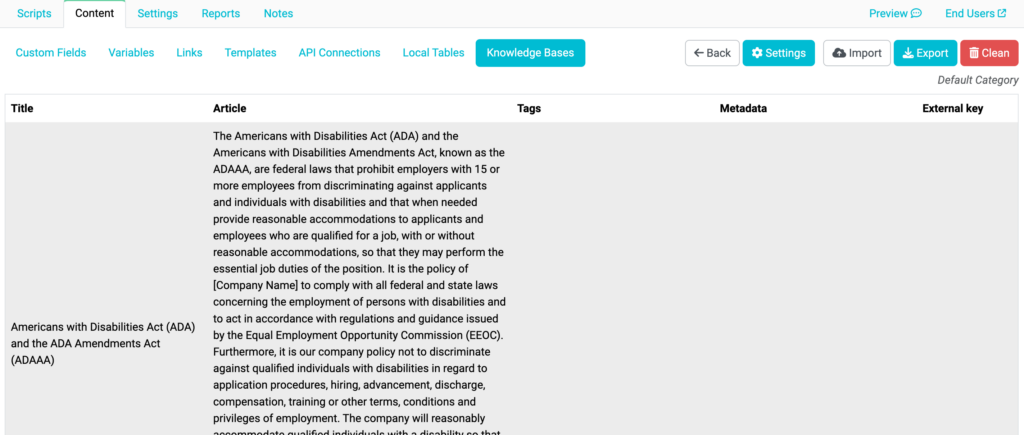
Vector Search and Full Text Search
Vector-based search typically performs natural language processing more intelligently as it is based on a semantic search sensibility. For example, let’s say a user asks a question about a “car” but the knowledge base is full of articles about “automobiles”.
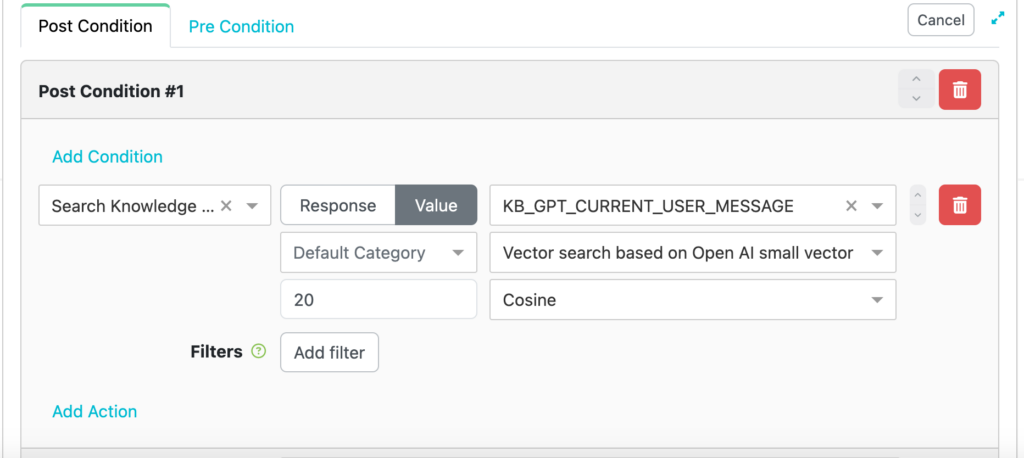
Vector-based search would perform better in this case as it would know that car is synonymous with automobiles whereas in a full text search, the search engine would be looking for the exact wording of “car”.
The Mobile Coach Platform’s vector search feature currently requires an organization to have a paid account with OpenAI and can incur extra expense and setup complexity.
Chat Optimization
Mobile Coach provides the ability to configure a rules buffer to manage LLM input and output. You can configure prompts that summarize and optimize the user’s question based on criteria you set and, if necessary, ask the user for clarifying information.
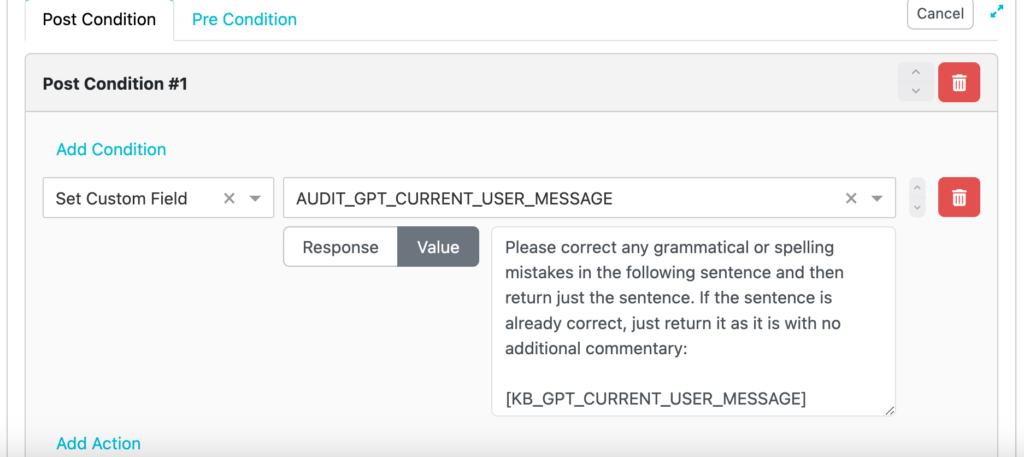
Then, you can configure prompts that can double or triple check chatbot answers against your criteria to ensure quality and accuracy.
Admin Notifications
Mobile Coach provides the ability to trigger notifications based on a set of conditions the organization sets. For example, trigger an email notification anytime a user asks a question outside of the organization’s prescribed knowledge base.


